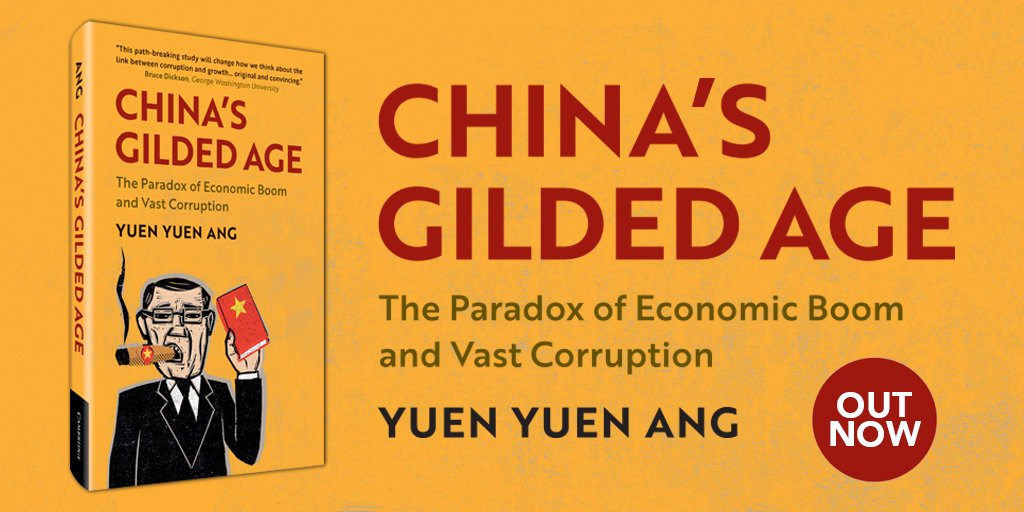If corruption is a drag on economic growth, why does China appear to have undergone some of its fastest growth during its periods of deepest corruption? This week on Sinica, Kaiser chats with Yuen Yuen Ang, an associate professor of political science at the University of Michigan, about her book China’s Gilded Age: The Paradox of Economic Boom and Vast Corruption, which sets out to explain this apparent contradiction. The author highlights the inadequacies of existing measures of corruption, suggests her own alternative means of measuring it, and explains how the prevalence of one particular form of corruption — what she calls “access money” — is something China has in common with the United States in the age of robber barons.
5:00: A typology of corruption, and how drugs are a useful analogy
10:05: Why all corruption is ultimately bad for a country
20:25: Is the “revolving door” in the U.S. equivalent to access money corruption?
27:44: The relationship between corruption and regime type
41:45: Profit-sharing with Chinese characteristics
59:37: Xi Jinping’s anti-corruption drive: are officials spared because of performance, or patronage?
A transcript of this interview is available on TheChinaProject.com.
Recommendations
Yuen Yuen: The documentary film Generation Wealth.
Kaiser: The Netflix miniseries The Chair and the podcast Chinese Whispers by Cindy Yu.








